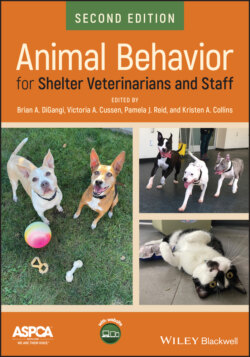Читать книгу Animal Behavior for Shelter Veterinarians and Staff - Группа авторов - Страница 24
1.3.3 Juvenile and Adolescent Periods
ОглавлениеThe periods from approximately three to six months and six months to one to two years (during which sexual maturity occurs) have received much less attention than other developmental periods. The juvenile period is sometimes described as the secondary socialization period because, like early in life, experiences can affect developing personality. Harvey et al. (2016) conducted behavior tests with dogs at five and eight months and found that some traits like jumping, barking, and low posture during greeting were stable, while others such as obedience, lip licking, and body shaking were not consistent between the two periods. A retrospective examination of guide dog development found that owner‐directed aggression decreased in German shepherds, Labrador retrievers, golden retrievers, and golden × Labrador crosses from 6 to 12 months, but German shepherds showed an increase in stranger‐directed aggression during this period (Serpell and Duffy 2016). Reductions in trainability and responsiveness to owner commands have also been documented during these periods (Asher et al. 2020). Although they have long since shed their puppy appearances, these dogs are still very much in a period of transition and growth. The dog‐human relationship could benefit if people set their expectations with this in mind.
